Ulcerative Colitis Diet – Best Foods To Eat And Avoid
Know what foods to eat and avoid for effective management of this condition.

Dealing with ulcerative colitis is stressful as one has to experience constant pain. Its recurrence may make it more annoying. Hence, following an ulcerative colitis diet comprising nutrition-dense foods that combat inflammation can greatly help. The diet can also help manage the other symptoms of the condition effectively. This article gives you more information about the foods to include and avoid in your diet if you have ulcerative colitis, certain natural remedies to manage this condition, and a sample diet plan. Continue reading to know more.
 At A Glance: Ulcerative Colitis Diet
At A Glance: Ulcerative Colitis Diet- Principle: Intake of anti-inflammatory foods that are gentle on the digestive system and avoidance of foods with excess fiber or those that may trigger inflammation
- Purpose: To help manage the symptoms experienced by individuals with ulcerative colitis and promote their overall gut health
- Who It Is For: Individuals with ulcerative colitis
- Duration: Long-term
- Who Should Avoid: Pregnant or breastfeeding individuals and those on medications like Warfarin or Celiprolol
- Cons: The extreme dietary restrictions may cause nutritional deficiencies.
In This Article
Ulcerative Colitis Facts At A Glance

- Ulcerative colitis is a chronic inflammatory bowel disease (IBD) that causes inflammation and ulceration of the innermost lining of the colon and rectum (1).
A study conducted on 88,015 Australians found the prevalence rate of ulcerative colitis to be 148 cases per 100,000 population. It was further seen that the prevalence rate in males above 45 years was 83 participants (52%) and the most frequent type of colitis was left-sided colitis (39%).
- About 1.6 million Americans and 2.5 million Europeans are affected by this disease (2).
- The root cause of this inflammatory disease is not confirmed, but scientists have hypothesized that it may be caused due to the presence of pathogenic bacteria or virus in the gut or an immune system attack on normal gut bacteria (3).
- The most common symptoms are diarrhea, cramps, rectal bleeding, fever, loss of appetite, joint pain, liver disease, and eye problems.
- Ulcerative colitis can be diagnosed by X-ray, CT-scan, white blood cell scan, complete blood count, liver function, inflammation markers like C-reactive protein, vitamin B-12 levels, colonoscopy, and antibody blood test (4).
- It stays lifelong and can flare up from time to time.
- It can affect anyone at any age and may lead to colon cancer if you have the disease for more than 10 years (5).
- Medicinal treatments include steroidsi Human-made compounds that boost the immune system, reduce inflammation and provide additional strength. and medicines that help reduce inflammation, the overreaction of the immune system, and diarrhea.
- Sometimes, the affected part of the colon is removed to reduce the risk of developing colon cancer (6).
- According to recent research, a plant-based diet can significantly reduce the risk or relapse in ulcerative colitis patients (7). You can have chicory, garlic, leeks, onion, asparagus, and jerusalem artichokes. These mentioned foods are also considered as prebiotic foods.
 Trivia
TriviaNow that we have got the facts straight, let’s look at which foods you should avoid.
Key Takeaways
- Consuming the right foods may help manage ulcerative colitis symptoms.
- Include foods rich in omega fats, white rice, eggs, and avocado in your diet.
- Avoid consuming refined sugar, creamy and greasy foods, aerated drinks, and alcohol.
- Stay hydrated to manage the symptoms of this chronic inflammatory condition.
Ulcerative Colitis – Foods To Avoid
1. Broccoli
You are lucky if you are someone who hates eating broccoli. This high-fiber food, loaded with phytonutrientsi Natural chemicals found in plants that are considered useful for human health due to their antioxidant properties. that help improve your health, is a big no-no for you. That’s because broccoli takes longer to digest and can also cause bloating. So, avoid consuming broccoli in any form, i.e., blanched, grilled, sauteed, boiled, or raw.
2. Legumes
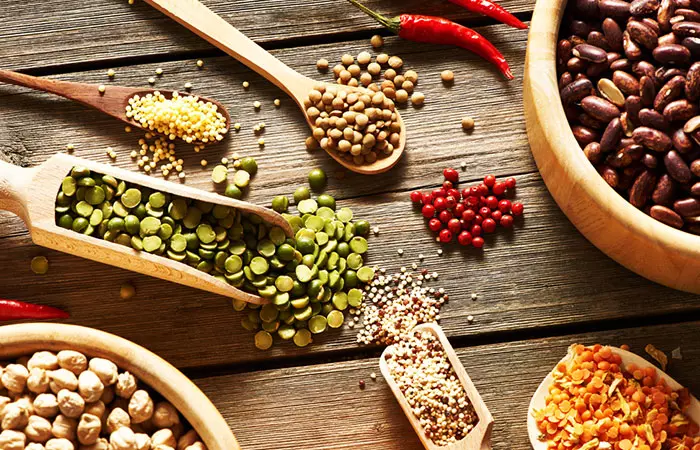
Like broccoli, legumes are also rich in fiber. Dietary fiber has many good qualities, but they are certainly not good for you. Fiber-rich foods take longer to digest and add bulk to stools, which might cause irritation to the colon lining, thereby leading to aggravation of the inflammation. Say goodbye to lentils, bean sprouts, kidney beans, lima beans, chickpeas, peas, etc. to help soothe the colon wall lining.
3. Alcohol
If you are suffering from ulcerative colitis, bid adieu to alcohol. Alcohol can highly irritate your colon lining and cause bloating, inflammation, and, in severe cases, rectal bleeding. So, toss your alcohol bottles into the bin and also stay away from drinking at social gatherings.
4. Aerated Drinks

The sugar loaded and aerated drinks that quench your thirst can cause serious damage to your colon. The colon lining, which is already ulcerated, can get more irritated by the bubbles in the drink. Moreover, the aerated drinks are loaded with sugar and caffeine, which can make you feel bloated. Follow a low FODMAP diet, which includes less sugar intake and will help with intestinal distress.
5. Tea And Coffee
Tea and coffee both contain caffeine, which acts as a stimulant. Stimulantsi A substance that makes the mind and body more active or efficient by enhancing or increasing activity of the central nervous system. increase the transit time through the colon, thereby chafing the lining of the colon. So, it is best to avoid tea and coffee if you are suffering from ulcerative colitis.
6. Chocolate

For some of you, it’s bad news. Chocolate contains caffeine and sugar, both of which can highly irritate the innermost lining of the colon. Sugar aggravates diarrhea, and caffeine, as mentioned before, increases the transit time through the colon. Both these ingredients can aggravate the symptoms. So, avoid eating chocolates.
7. Creamy And Greasy Food
Creamy and greasy foods containing loads of mayonnaise, butter, cream cheese, margarine, animal fat, etc. can irritate the inner lining of the colon. This can worsen the ulcers and may cause rectal bleeding. Avoid creamy pasta, macaroni and cheese, and creamy cheese containing foods to pacify your colon.
8. Mushroom And Corn
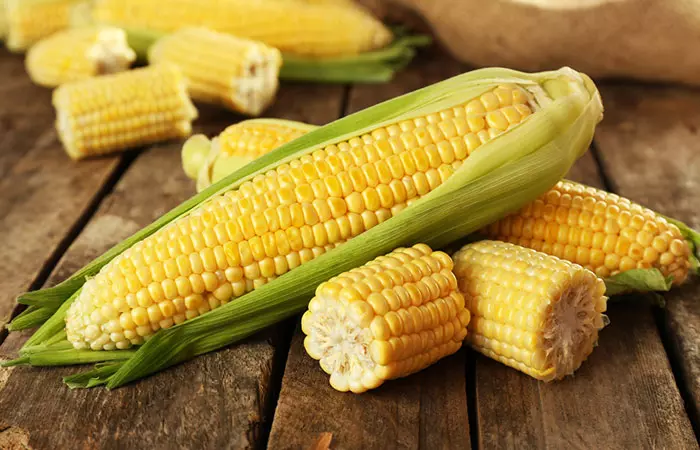
Mushroom and corn are both tough to digest. Most corn kernels are not chewed properly and can cause inflammation. Mushrooms are also not completely digested, so you should steer clear of them.
9. Whole Spices And Herbs
Spices are good but not the whole ones. Do not add whole spices to your food because they will not get digested properly and can scrape the highly sensitive large intestinal walls. If you want to add flavor and aroma to your food, you can chop or grind the herbs and spices and use them. You can also put the spices in a muslin cloth and place it in your food to transfer the aroma.
10. Prunes
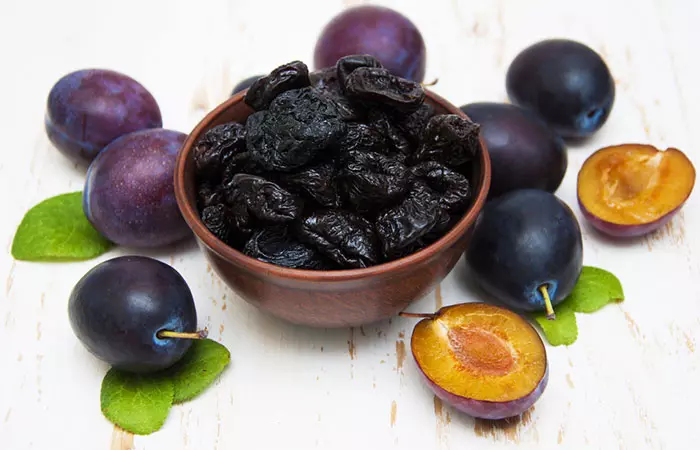
Prunes are highly effective for those suffering from constipation since they reduce the transit time through the large intestine. They can be highly dangerous for you because the fast moving foods can scratch the colon walls, leading to inflammation and bleeding. Stay away from fresh and dried prunes and prune juice.
11. Gluten
Gluten is found in oats, wheat, flour, barley, rye, etc. and can worsen the ulcerative colitis in people who are gluten sensitive.
So, if you are gluten sensitive, do not consume foods that contain gluten. Be extra careful when you eat out because gluten can be present in sauces and can cause pain and diarrhea.
12. Seeds And Nuts
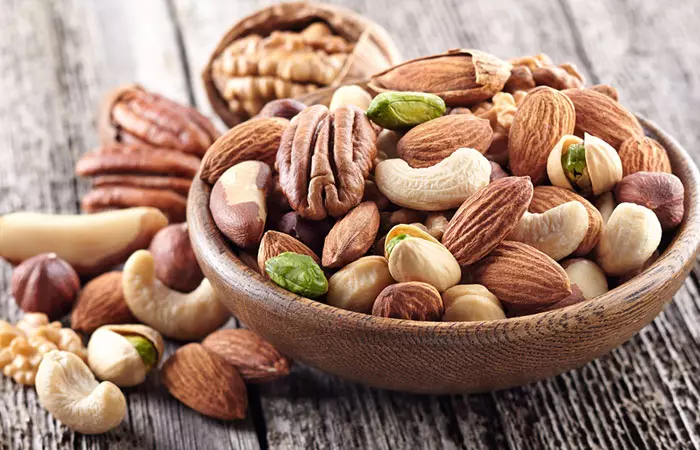
Image: Shutterstock
Seeds and nuts contain healthy fats, but they are also tough to digest. So, do not consume whole seeds and nuts. You can grind them into a fine powder to make a paste to add to your food and get the healthy fats that your body needs.
13. Fatty Meats
If you are suffering from ulcerative colitis, you should strictly avoid consuming fatty meats because they can cause chafing of the colon wall. Choose lean cuts of beef, pork, turkey, and chicken breast to get the protein.
14. Refined Sugar
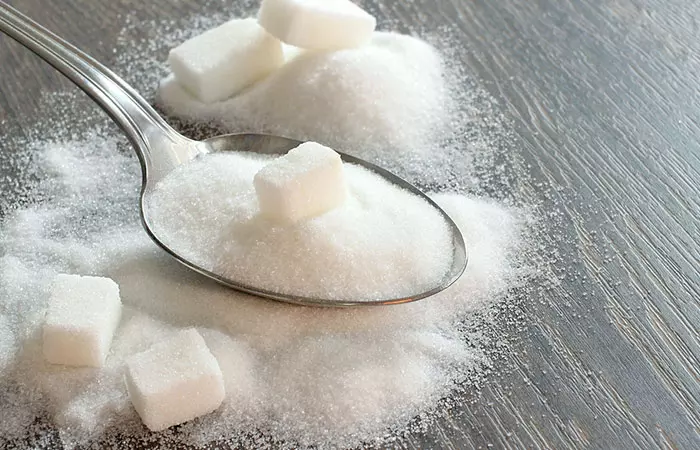
Image: Shutterstock
Refined sugar is also a big no-no for you. It pulls in water and reduces the transit time of the food, thereby making you more prone to diarrhea and scraping of the colon wall. You can substitute refined sugar with jaggery.
15. Cabbage, Celery, And Brussels Sprouts
Keep away from a high-fiber diet as they take longer to digest. Avoid eating cabbage, celery, and Brussels sprouts because they are high in fiber and potential colon lining irritants.
Instead, have sweet potato, potato, carrots, and squash.
NOTE: Dairy is not mentioned in this list because a few people do not get ulcerative colitis flare-ups while others do. People with frequent flare-ups should follow an ulcerative colitis flare-up diet.
So, check with your doctor to find out if you can consume dairy products. It may seem like you have run out of options to eat, but that’s not the case. Here is the list of foods that you can eat.
Ulcerative Colitis – Foods To Eat
1. Fruit Juices
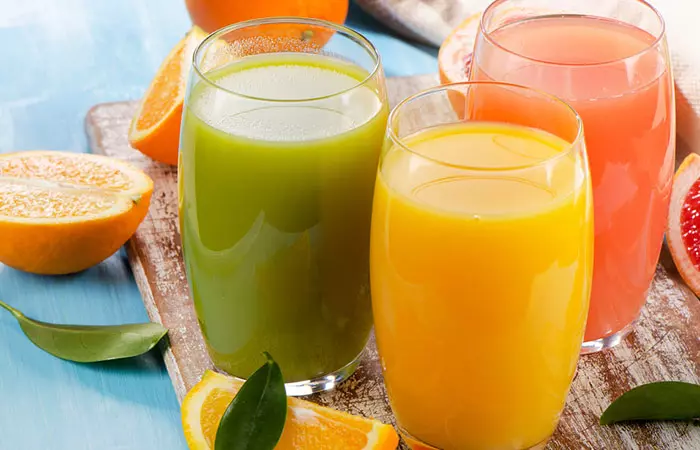
You can drink fruit juices, but make sure you strain them before drinking. Peel the skin and remove the pith before you juice the fruits. Avoid drinking smoothies. Do not drink prune juice and papaya juice.
2. Omega-3 Fatty Acids
Omega-3 fatty acids
are great for you as they have anti-inflammatory properties. Omega-3-rich foods include salmon, mackerel, sardines, flaxseed oil, ground almond, ground flax seeds, ground peanut, and smooth nut paste.
3. Squash
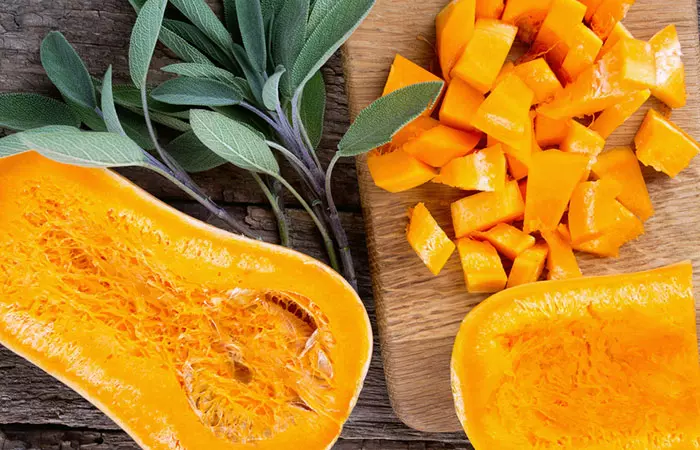
There are a variety of squashes you can consume – butternut squash, zucchini, summer squash, winter squash, and acorn squash. You can make a stew or blended soup with them for a mouthwatering and filling lunch or dinner.
4. White Rice
White rice
has minimal amounts of fiber and is, therefore, easy to digest. Have well cooked white rice to reduce the inflammatory reaction in your colon.
5. Potato And Sweet Potato
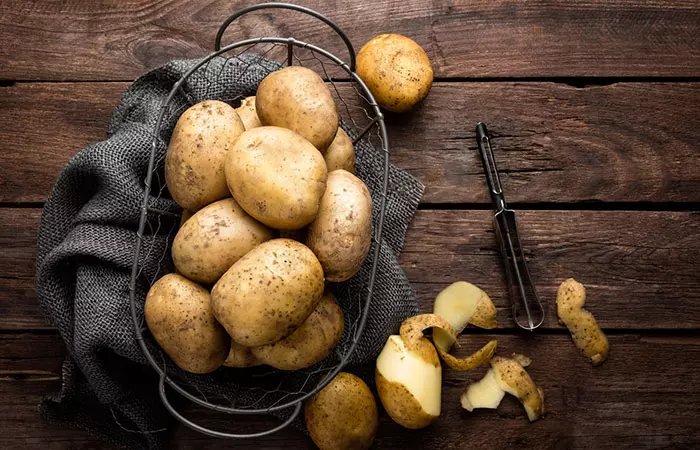
Peeled potato and sweet potato go easy on your digestive system. You can grill or mash them to make a delicious dinner. You can have sweet potato if you are worried about weight gain.
6. Eggs
Eggs are a great source of fat-soluble vitamins, minerals, and omega-3-fatty acids. And the best thing about eggs is that they can be tolerated by people suffering from ulcerative colitis. Make scrambled or boiled eggs for a yummy and satisfying breakfast.
7. Avocado
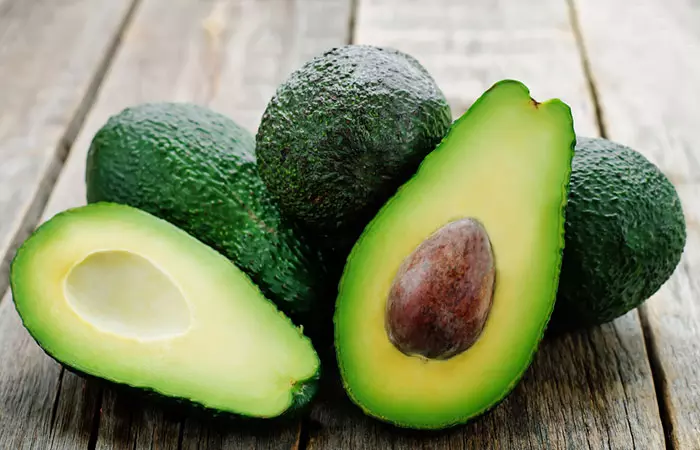
Image: Shutterstock
Rich in healthy fats, this buttery and nutty fruit is perfect for you. It does not irritate your colon and goes easy on your digestion. Make an avocado smoothie or add avocado to your salad or burritos.
8. Unsweetened Applesauce
Prepare an ulcerative colitis-friendly applesauce by peeling the apples and removing the seeds. Then, boil the apple to make applesauce but do not add refined sugar. You can use a bit of jaggery. Unsweetened applesauce will not cause any flare-ups.
9. Lean Meat
Lean meats like lean cuts of beef, pork, turkey, and chicken breast are your best sources of protein. Protein is essential for your body and should not be avoided. Have lean meats to avoid irritating the walls of your large intestine.
10. Flattened Rice
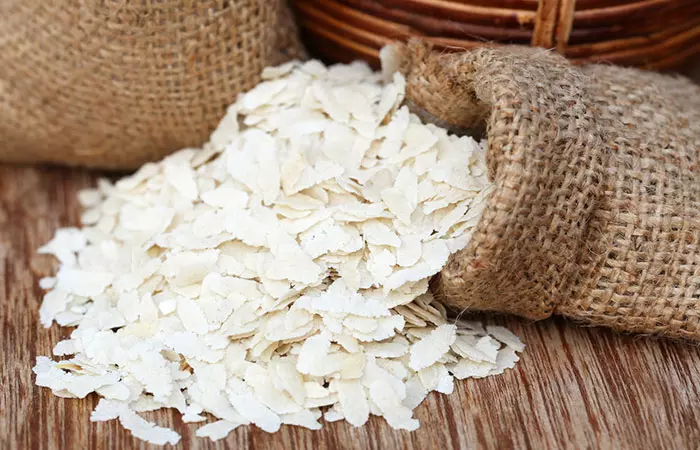
Flattened rice can be a good substitute for breakfast cereals, quinoa, muesli, and oatmeal. Flattened rice is white rice that is flattened into a flaky form. It can be consumed instantly by adding water, milk, or yogurt. Depending on whether or not you are sensitive to dairy, you can have flattened rice either with dairy or soak it in water for a minute and then add avocado and peeled apples for a filling and soothing breakfast.
11. Vitamin D
As per one research, Vitamin D can reduce disease activity in UC patients (8). Inculcate vitamin-D-rich foods in your diet such as salmon, swordfish, tuna fish.
12. Zinc
Zinc-rich food reduces inflammation in ulcerative colitis patients (9).You can have oysters, red meat, shellfish, chickpeas, lentils, and beans.
In addition to dietary changes, one can also inculcate probiotic foods or drinks into their diet. Probiotics are beneficial bacteria that can help a person suffering from ulcerative colitis. Consult a doctor to know more about a probiotic-rich diet.
These are the foods you can consume if you are suffering from ulcerative colitis. You may also want to check out an anti-inflammatory diet plan that can be ulcerative colitis-friendly.
 Did You Know?
Did You Know?Sample Ulcerative Colitis Diet
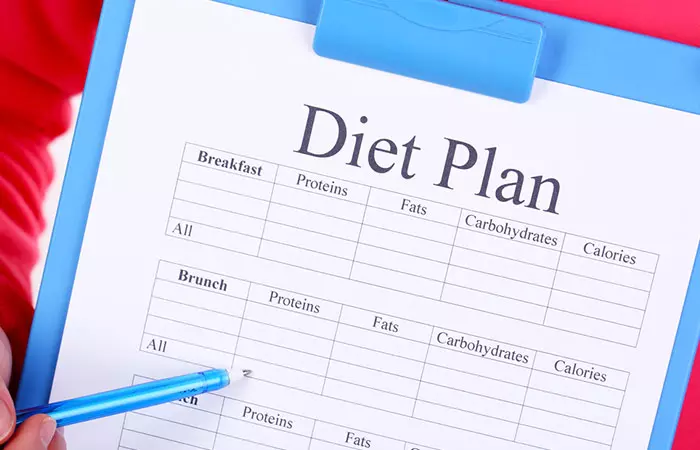
| Meals | What To Eat |
| Breakfast | 1 boiled egg + Carrot (thoroughly cooked) with applesauce |
| Lunch | Tuna sandwich with avocado |
| Evening Snack | 1 cup yogurt or 1 cup apple juice |
| Dinner | Mashed pumpkin (well-cooked) and grilled lean meat |
Natasha, a blogger, discusses her experience with an Ulcerative Colitis (UC) diet, providing advice on how to test foods before consumption, sharing a specific diet plan called “The Six Things Diet,” and listing allowed and not allowed foods for individuals with UC. She said, “I lived on this diet for over a year before even trying to add anything else to it. (i)” She also adds, “But it is well worth it if it keeps us healthy and flare-free.”
Now you know how you can design your daily menu without having to stress about flare-ups. You can also follow the practical tips mentioned in the next section to manage your diet well.
Practical Tips For Managing Ulcerative Colitis Diet
- Managing the ulcerative colitis diet can be challenging. However, with some careful planning and simple tips, you may be able to do it well. Take a look at these tips below:
- Keep a food diary to track everything you eat and note any symptoms that follow. This can help you identify potential trigger foods and guide future meal planning.
- Try eating smaller, more frequent meals instead of large portions to reduce the digestive strain.
- When trying new foods, introduce them slowly and observe any symptoms to determine whether a specific food aggravates your condition.
Keep yourself hydrated throughout the day to prevent dehydration.
You may also consult a registered dietitian to create a diet plan tailored to your specific needs and symptoms.
There are also other alternative remedies available that, along with your choice of food, can help alleviate the pain and discomfort. Here’s what else you can do to pacify your colon.
Alternative Ways To Treat Ulcerative Colitis
Quit Smoking

The nicotine present in cigarettes can irritate the colon wall and the ulcers. So, you need to drop that habit now.
Reduce Stress

Long-term stress may worsen ulcerative colitis symptoms by triggering your stress response system called the HPA axis, which controls how we react to stress. It may also disrupt the autonomic nervous system (ANS), which helps control things we do not consciously manage, like digestion. This may increase inflammation and weaken the gut lining, worsening the symptoms (10). To avoid this, practice and learn to take less stress. Go for a walk, talk to your friends, spend quality time with your family, travel to new places, learn new skills, etc. It will give you and your brain the required rest.
Yoga

Image: Shutterstock
Practice yoga to reduce colon inflammation. Yoga has even helped heal cancer (11). So, believe in the power of yoga and start practicing it from today.
Seek Help

Unannounced flare-ups are very common and can cause stress, anxiety, and depression. Talk to a professional to get help to deal with your problem.
Ulcerative Colitis And Intermittent Fasting
According to the most recent studies, appropriate IF regimens may be useful nutritional intervention strategies for the prevention and treatment of colitis. (12)
Infographic: Ulcerative Colitis: What To Consume And Avoid
There are no particular diet plans for ulcerative colitis. However, steering clear of certain foods can assist in managing the condition. Adding certain foods to your diet can ease this condition and improve your health. It is also important to identify and remove the foods that can irritate the colon. Take a look at the infographic below for the top foods that are detrimental and safe to consume.

Illustration: StyleCraze Design Team
The ulcerative colitis diet plays a major role in alleviating this health concern. Consume anti-inflammatory foods for ulcerative colitis that are easy on the colon’s lining and have anti-inflammatory properties to soothe intestinal distress. Remember, foods rich in fiber take time to digest and cause inflammation of the colon, thus exacerbating the condition. Chocolate, sugar, alcohol, smoking, and caffeinated drinks must also be avoided while embracing foods like white rice (low in fiber), fruit juices, eggs, sweet potato, and peeled potato. You can complement this diet with a few yoga poses and a stress-free lifestyle for effective results. Always consult with your healthcare provider or a nutritionist before making any major dietary changes. They can help you tailor a personalized eating plan that suits your unique symptoms and nutritional needs.
Frequently Asked Questions
Is bread good for ulcerative colitis?
No, bread and other gluten-rich food items may aggravate the symptoms of ulcerative colitis.
Is cucumber good for colitis?
Yes, cucumber is good for colitis. But ensure you peel it to reduce the high fiber content.
Can diet reverse ulcerative colitis?
No, there is no evidence stating that a diet can reverse ulcerative colitis. However, adding foods like avocados, fruit juices, and eggs to your diet that do not irritate the colon and are easy on digestion may help control the symptoms of the disease and prevent its recurrence.
Is a liquid diet good for ulcerative colitis?
Yes, anecdotal evidence suggests that a liquid diet is good for ulcerative colitis as it is low in fiber. However, such diets may not provide you with a balance of protein, carbohydrates, fats, and other essential nutrients. Therefore, you should only consume them on the recommendation of your doctor.
Is ghee good for colitis?
Yes, ghee may be good for colitis as it has anti-inflammatory properties (13). Since ulcerative colitis is linked with colon and rectum inflammation and irritation, ghee may help improve its symptoms. However, relevant studies are needed to support this claim.
Are bananas good for colitis?
Yes, anecdotal evidence suggests that very ripe, soft bananas are good for colitis as they are easy to digest. However, if you experience any discomfort post their consumption, be sure to consult your doctor immediately.
Illustration: Ulcerative Colitis Diet – Best Foods To Eat And Avoid
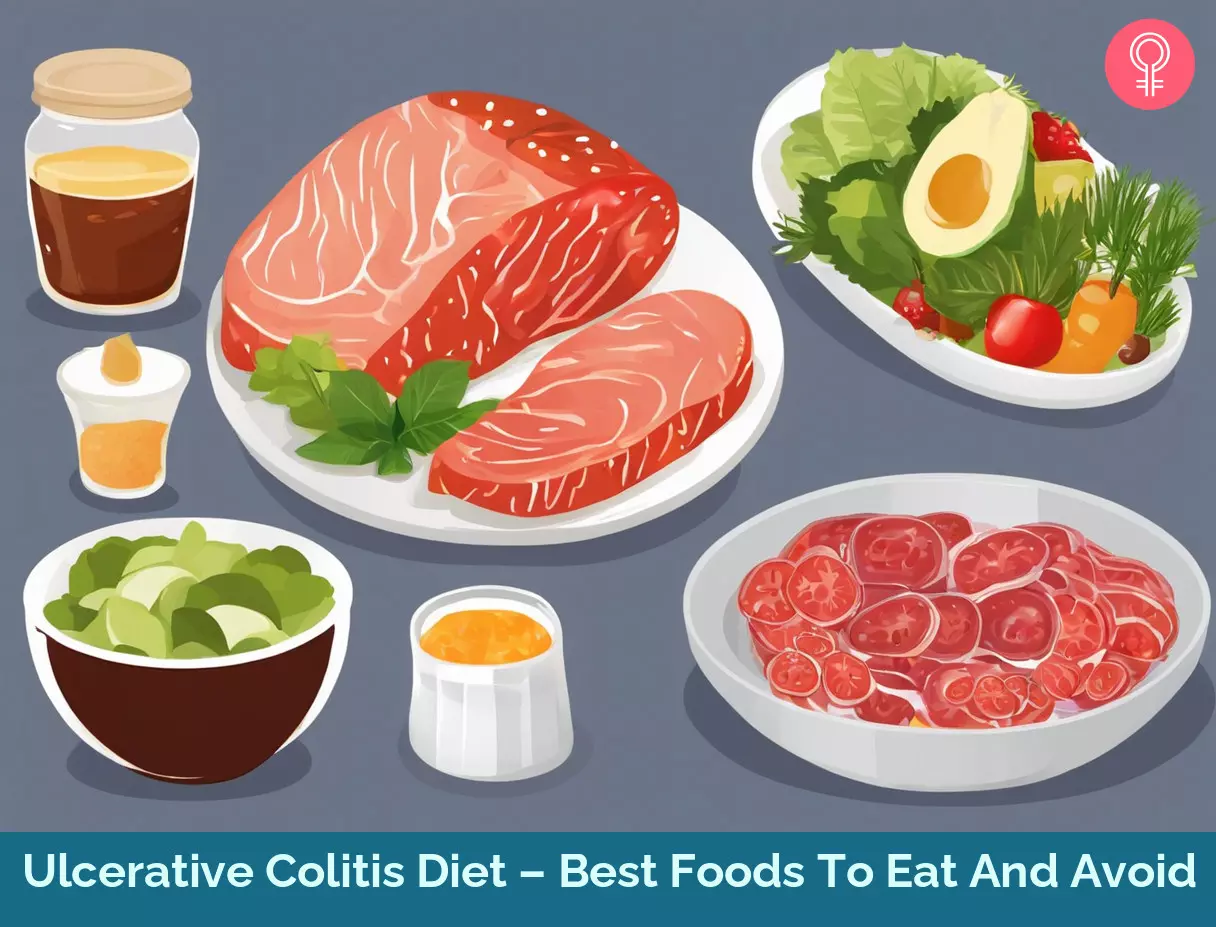
Image: Stable Diffusion/StyleCraze Design Team
Discover the transformative power of diet in treating ulcerative colitis. Check out this informative video that explores dietary strategies and tips for managing this chronic condition effectively.
Personal Experience: Source
StyleCraze's articles are interwoven with authentic personal narratives that provide depth and resonance to our content. Below are the sources of the personal accounts referenced in this article.
i. Ulcerative Colitis Diethttps://natashaspeaks312988738.wordpress.com/2020/08/31/ulcerative-colitis-diet/
References
Articles on StyleCraze are backed by verified information from peer-reviewed and academic research papers, reputed organizations, research institutions, and medical associations to ensure accuracy and relevance. Read our editorial policy to learn more.
- Colitis, Ulcerative, StatPearls, US National Library of Medicine, National Institutes of Health.
https://www.ncbi.nlm.nih.gov/books/NBK459282/ - THE FACTS ABOUT Inflammatory Bowel Diseases, Crohns & Colitis Foundation of America.
https://www.crohnscolitisfoundation.org/sites/default/files/2019-02/Updated%20IBD%20Factbook.pdf - Ulcerative colitis: diagnosis and management, The British Medical Journal, US National Library of Medicine, National Institutes of Health.
https://www.ncbi.nlm.nih.gov/pmc/articles/PMC1539087/ - DIAGNOSING CROHN’S DISEASE AND ULCERATIVE COLITIS, Crohns & Colitis Foundation of America.
https://www.crohnscolitisfoundation.org/sites/default/files/legacy/assets/pdfs/diagnosingibd.pdf - Risk for colorectal cancer in ulcerative colitis: Changes, causes and management strategies, World Journal of Gastroenterology, US National Library of Medicine, National Institutes of Health.
https://www.ncbi.nlm.nih.gov/pmc/articles/PMC2725331/ - Surgical management of ulcerative colitis, US National Library of Medicine, National Institutes of Health.
https://www.ncbi.nlm.nih.gov/books/NBK6931/ - Ulcerative Colitis – Prevention and Treatment with a Plant-Based Diet
https://juniperpublishers.com/argh/pdf/ARGH.MS.ID.555908.pdf - The effects of two vitamin D regimens on ulcerative colitis activity index quality of life and oxidant/anti-oxidant status
https://nutritionj.biomedcentral.com/articles/10.1186/s12937-019-0441-7#:~:text=Our%20results%20indicate%20that%202000 benefit%20from%20vitamin%20D%20therapy. - Zinc supplementation reduces inflammation in ulcerative colitis patients by downregulating gene expression of Zn metalloproteins
https://www.sciencedirect.com/science/article/abs/pii/S2213434418300379#:~:text=Zinc%20homeostasis%20is%20altered%20in%20patients%20with%20ulcerative%20colitis.&text=Zinc%20plays%20an%20important%20role%20in%20the%20immune%20system.&text=There%20is%20a%20relationship%20between 14%20gene%20expression%20and%20inflammation.&text=Zinc%20supplementation%20downregulate%20metalloproteins%20gene%20expression%20improving%20zinc%20homeostasis. - Psychological stress in inflammatory bowel disease: Psychoneuroimmunological insights into bidirectional gut-brain communications. US National Library of Medicine, National Institutes of Health.
https://pmc.ncbi.nlm.nih.gov/articles/PMC9583867/ - Cancer: Prevention and Rehabilitation through Yoga International Journal of Yoga US National Library of Medicine National Institutes of Health.
https://www.ncbi.nlm.nih.gov/pmc/articles/PMC5769194/ - Effects of alternate-day fasting time-restricted fasting and intermittent energy restriction DSS-induced on colitis and behavioral disorders
https://www.ncbi.nlm.nih.gov/pmc/articles/PMC7162980/ - Ghee Butter from Bovine Colostrum Reduces Inflammation in the Mouse Model of Acute Pancreatitis with Potential Involvement of Free Fatty Acid Receptors
https://www.ncbi.nlm.nih.gov/pmc/articles/PMC8468552/
Read full bio of Kelly McKenzie
Read full bio of Ravi Teja Tadimalla
Read full bio of Payal Karnik








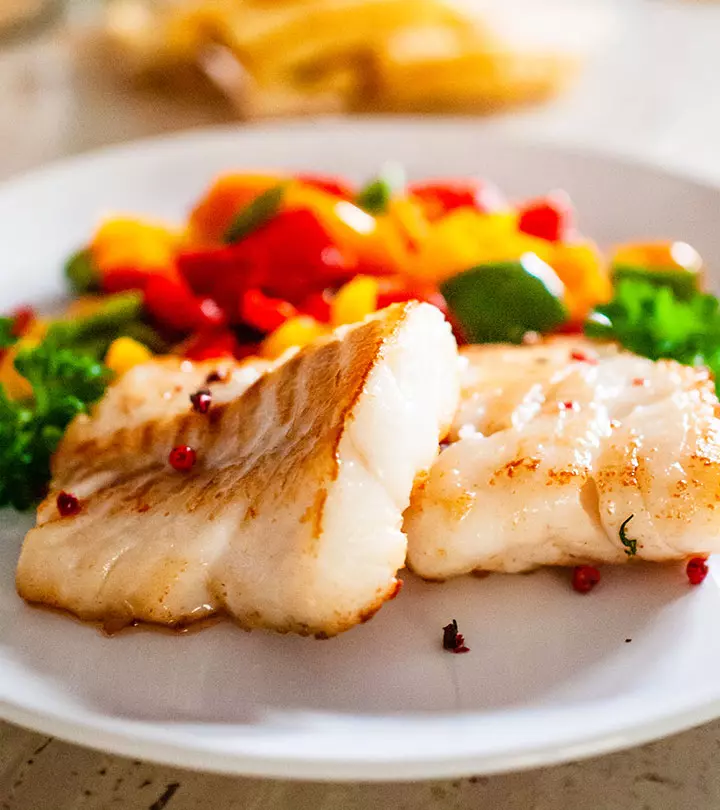

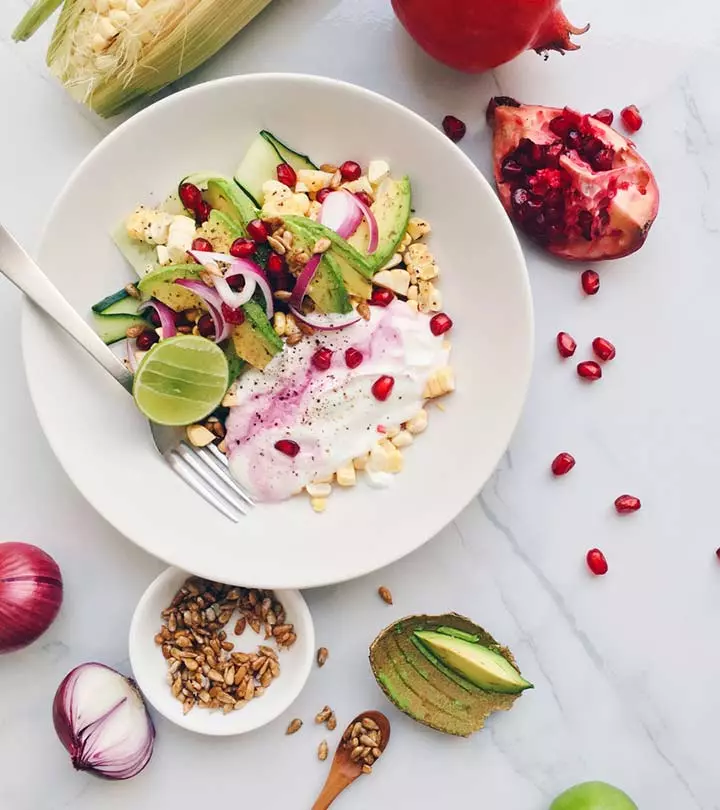
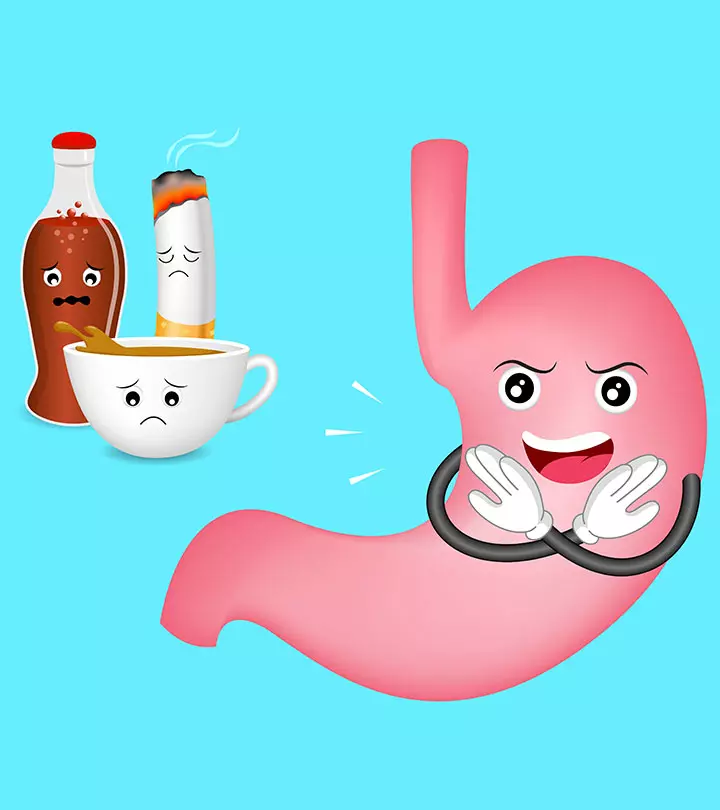
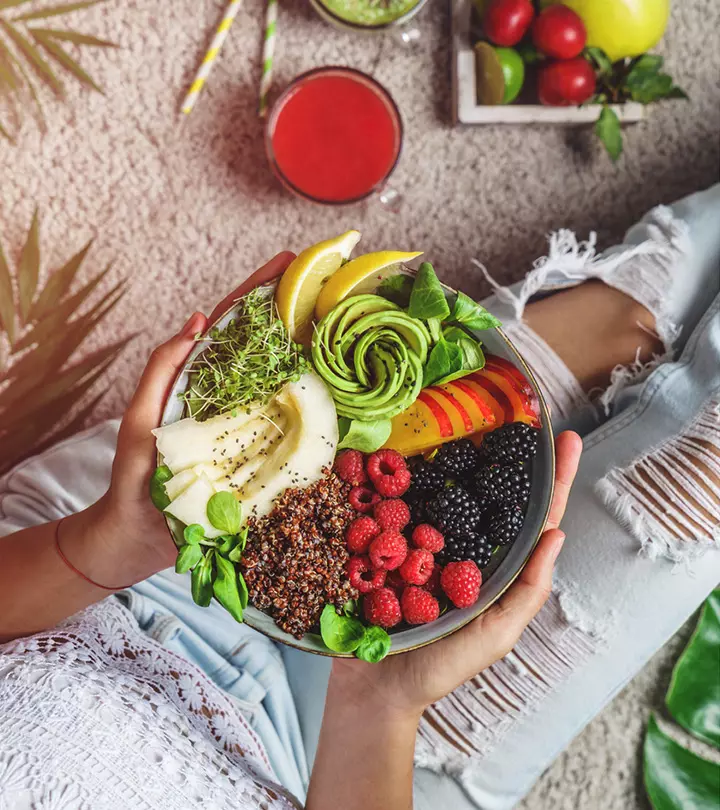



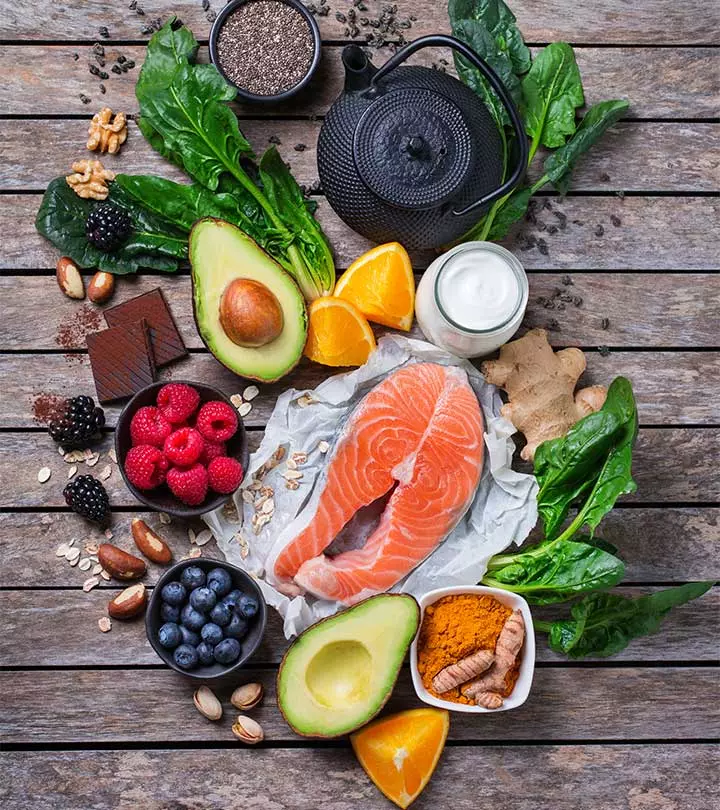

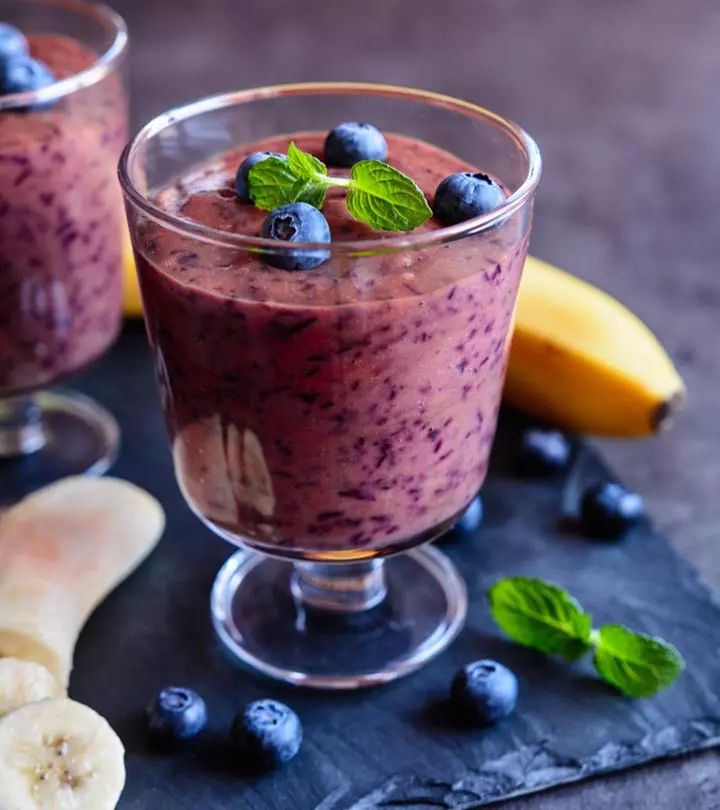
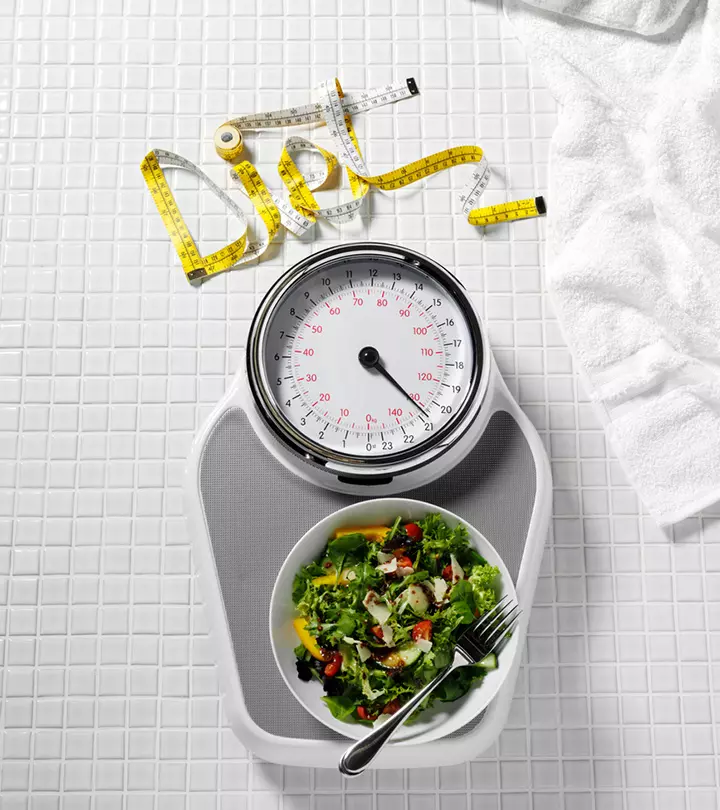

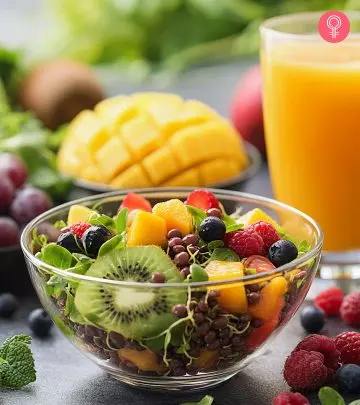




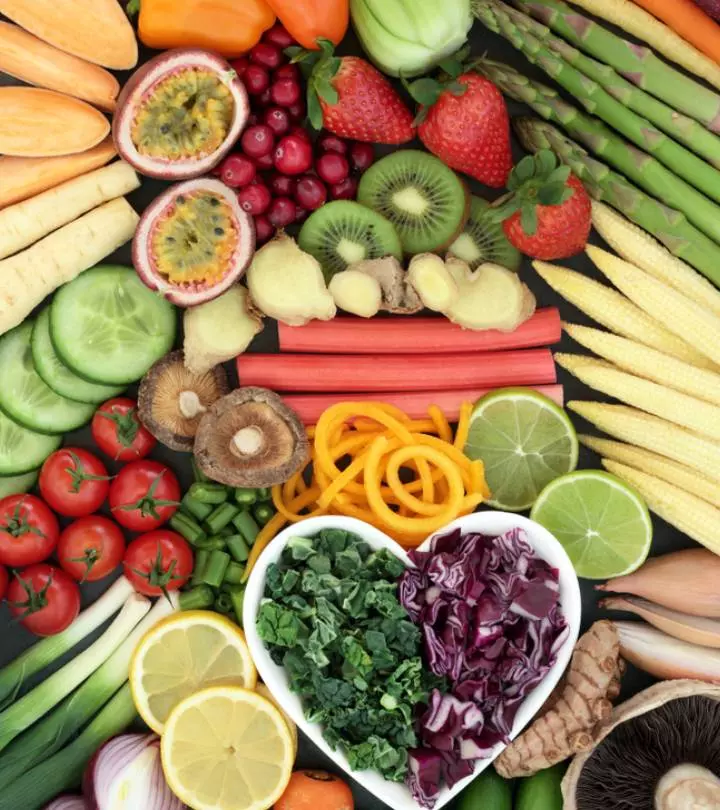
Community Experiences
Join the conversation and become a part of our empowering community! Share your stories, experiences, and insights to connect with other beauty, lifestyle, and health enthusiasts.